Insulator
An insulator is a material that does not easily allow the flow of electricity or heat through it. It is the opposite of a conductor, which allows the flow of electricity or heat. Insulators are important in various applications, such as in electrical systems and thermal insulation.
Properties of Insulators
Insulators have the following properties:
- High resistance: Insulators have high electrical resistance, which means they hinder the flow of electric current.
- Low thermal conductivity: Insulators do not conduct heat well, making them suitable for thermal insulation.
- Non-metallic: Most insulators are non-metallic materials, such as rubber, plastic, glass, and wood.
- Dielectric: Insulators can be used as dielectric materials in capacitors, as they can store and release electrical energy.
Examples of Insulators
Common examples of insulators include:
Applications of Insulators
Insulators are used in various applications, such as:
- Electrical wiring: Insulating materials are used to cover electrical wires to prevent electric shocks and short circuits.
- Building insulation: Insulators are used in walls, roofs, and floors to reduce heat transfer and improve energy efficiency.
- Electronics: Insulators are used in circuit boards and electronic components to prevent the flow of electricity between conductive elements.
- High-voltage power lines: Insulators are used to support and separate the conductors in overhead power transmission lines.
Study Guide
To understand the concept of insulators, consider the following study guide questions:
- What are the properties of insulators?
- Provide examples of insulating materials.
- Explain the importance of insulators in electrical and thermal applications.
- Discuss the role of insulators in preventing electrical accidents and improving energy efficiency.
- Identify real-world applications where insulators are crucial for safety and performance.
By studying these questions, you can gain a comprehensive understanding of insulators and their significance in various fields.
[Insulator] Related Worksheets and Study Guides:
.◂Science Worksheets and Study Guides First Grade. Animal groups
Study Guide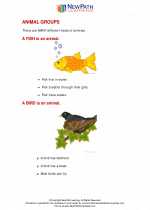 Animal groups
Animal groups  Worksheet/Answer key
Worksheet/Answer key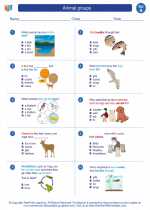 Animal groups
Animal groups  Worksheet/Answer key
Worksheet/Answer key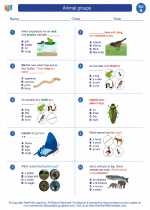 Animal groups
Animal groups  Worksheet/Answer key
Worksheet/Answer key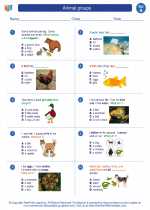 Animal groups
Animal groups  Vocabulary/Answer key
Vocabulary/Answer key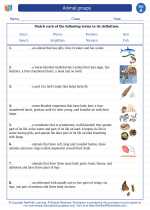 Animal groups
Animal groups 

 Worksheet/Answer key
Worksheet/Answer key
 Worksheet/Answer key
Worksheet/Answer key
 Worksheet/Answer key
Worksheet/Answer key
 Vocabulary/Answer key
Vocabulary/Answer key

The resources above cover the following skills:
LIFE SCIENCE
From Molecules to Organisms: Structures and Processes
Design a solution to a human problem by using materials to imitate how plants and/or animals use their external parts to help them survive, grow, and meet their needs (e.g., outerwear imitating animal furs for insulation, gear mimicking tree bark or shells for protection).